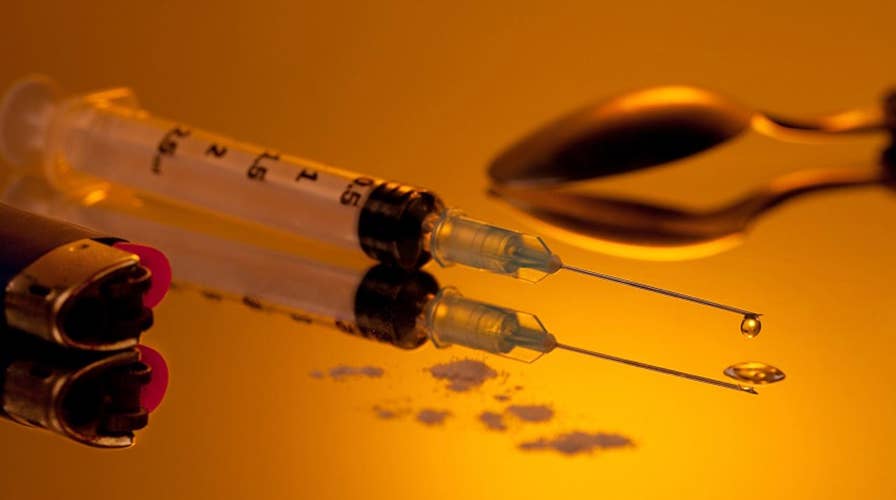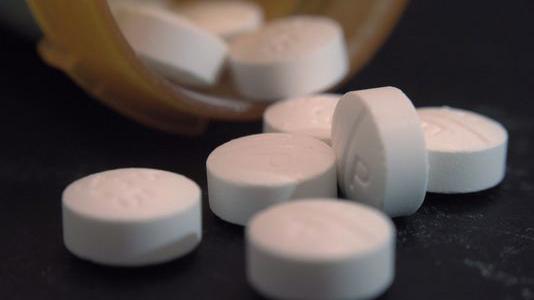How serious is the opioid epidemic?
More than 42,000 people died from opioids in the United States in 2016 and overdose deaths have increased more than five times since 1999. We take a look at the opioid epidemic by the numbers.
The United States isn’t the only country in the world struggling to combat the devastating effects of opioid addiction.
While opioid use – both in the form of prescription painkillers and heroin – has not reached the crisis level it has in the U.S., health officials in the United Kingdom have seen a drastic uptick in drug abuse over the last decade and are warning that, without a greater investment in education and public health services, Great Britain could face a similar situation to the U.S. sometime in the near future.
“While some of the increase can be attributed to an improved understanding of the effectiveness of these medications by medical professionals, we are concerned by reports of unnecessary prescription,” Barry Miller, the dean of the Faculty of Pain Medicine at the Royal College of Anesthetists, told the Guardian.
The National Health Service (NHS) released figures earlier this month showing that the number of opioid prescriptions in the U.K. has doubled over the last 10 years – from 12 million issued in 2006 to 24 million in 2016. Abuse of prescription opioids, like oxycodone, is considered to be the main culprit in the spike of U.S. drug users over the last decade who are addicted to heroin.
“Our greater understanding of these medications can improve the quality of life for tens of thousands of patients in the U.K. living with complex pain,” Miller said. “However, all NHS staff prescribing these medications need to ensure they are not doing more harm than good,”
Health officials in the U.K. are looking at the U.S. with a wary eye as they see the problem developing along similar lines across the Atlantic – with patients getting addicted to prescription painkillers before moving on to harder substances like heroin or fentanyl.
The European Monitoring Centre for Drugs and Drug Addiction reported that the U.K. accounted for 31 percent of Europe’s 8,441 overdose deaths in 2015 – still a far cry from the 33,091 the U.S. recorded that year – and eight in every 1,000 Britons are considered high-risk opioid users.
“We are in the midst of a great public health disaster, which is killing hundreds of people a year and ruining the lives of millions,” Harry Shapiro, head of addiction charity DrugWise, said last year, according to New Scientist.
Despite the rise in both opioid use and overdose deaths, experts and officials across the pond say that the problem in the U.K. is a far cry from what is going on in the U.S., where President Trump is expected next week to formally declare the opioid crisis a national emergency.
Oversight from the U.K.’s NHS makes it much harder for a doctor to excessively prescribe any psychoactive substance and for patients in the U.K. to move among prescribers compared to the U.S.
“Only 1 percent of prescriptions in the U.K. are private. The overwhelming majority of prescriptions for opiates and other psychoactive drugs, such as pregabalin, are on the NHS,” Cathy Stannard, a consultant in complex pain and the Pain Transformation Programme clinical lead at NHS Gloucestershire, told Prescriber magazine. “A practice’s or trust’s prescribing data soon shows if one doctor prescribes excessive amounts and the prescribing adviser will investigate.
Stannard added: “The oversight of opioid prescribing in the U.K. is quite tight.”
Still, experts warn, to prevent the issue from getting any worse in the U.K., there needs to be a major investment in monitoring, services and awareness.
“Raising awareness, including among healthcare professionals, such as the prescribers who write the prescriptions and pharmacy staff who dispense the medicines, should be a priority,” Roz Gittins, the chief pharmacist at Addaction, a drug and alcohol treatment charity, said. “There simply is not enough information, advice and support for those addicted to prescribed or [over the counter] medications.”


